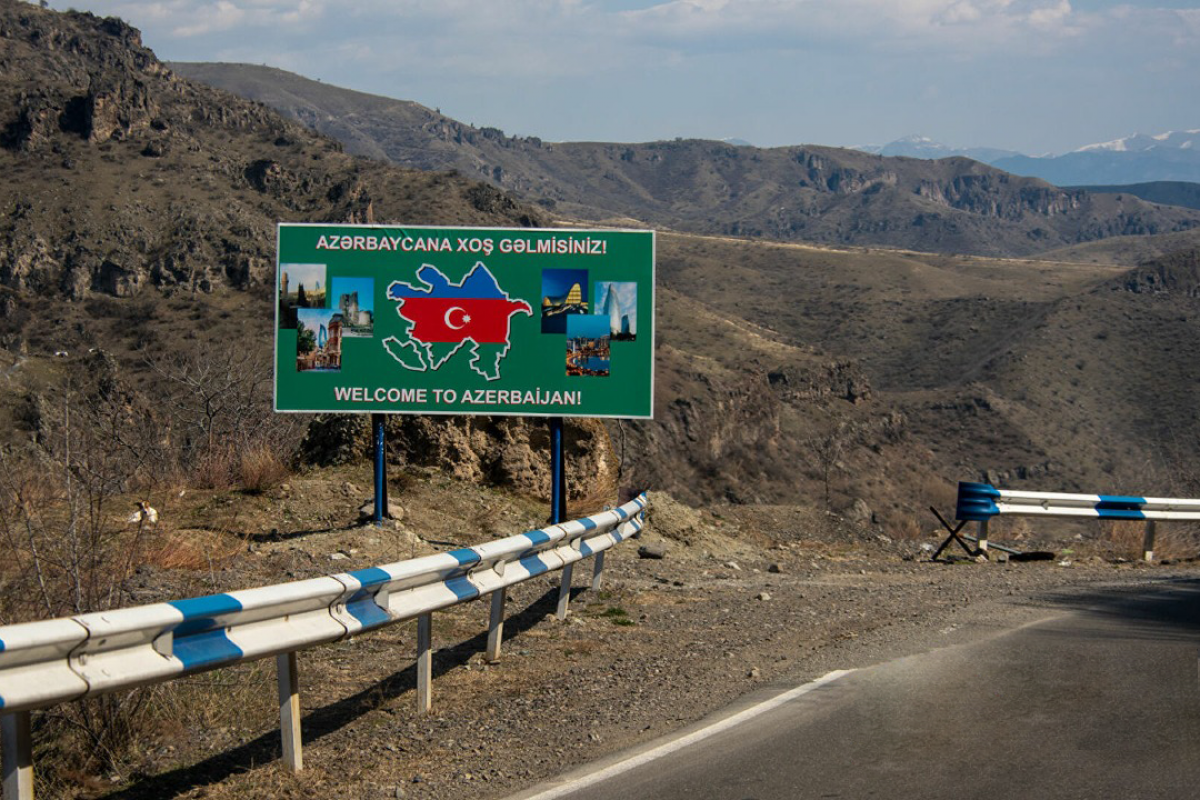Azerbaijan’s President Ilham Aliyev accused the Armenian authorities of twice violating the agreements reached on holding a meeting to discuss border delimitation and demarcation process.
President’s remarks came at a joint press conference with his Lithuanian counterpart Gitanas Nausėda in Baku on Wednesday.
“It was the Armenian Foreign Ministry that proposed to hold the first meeting on the border issue. Azerbaijan accepted the offer, and we were ready to send out a delegation. However, on the last day, on 29 April, Armenia canceled the agreed meeting. This is very disappointing,” President Aliyev said, according to his press service.
He further said that a similar meeting scheduled for May 7-11 at the request of the Armenian side was again canceled by Yerevan. According to him, Baku is currently waiting for new dates from Armenia to start working on the issue.
“Azerbaijan has always remained committed to its obligations. If we promised, in the presence of the President of the European Council, that we were ready to meet by the end of April, we were committed to our word. However, we must see the same level of responsibility from the side of Armenia,” President Aliyev said, adding “such maneuvers and fairly strange steps of the Armenian government actually undermine certain confidence.”
On April 6, President Aliyev and Armenian Prime Minister Nikol Pashinyan came together in a meeting hosted by the European Council President, Charles Michel, in Brussels. Michel has then said that the sides agreed to delimit the border between Armenia and Azerbaijan, as well as ensure a stable security situation along and in the vicinity of the borderline through a Joint Border Commission by late April.
On April 23, the Azerbaijani authorities announced that the composition of the national commission for the delimitation and demarcation of the Armenian-Azerbaijani border and a delegation to draft the peace agreement between the two countries was determined.
Meanwhile, the Armenian authorities announced the creation of the border commission this Thursday. Deputy Chairman of the country’s Security Council, Armen Grigoryan, said the commission’s composition would be made public when the “time comes.” According to him, the refusal of the Armenian side to attend the meetings with the Azerbaijani border delegation in late April and mid-May was due to what he called “technical disagreements.”
The significant part of the state border of Azerbaijan with Armenia, measuring 1,007 kilometers in length, remained out of the country’s control for nearly 30 years after Azerbaijan’s Karabakh (Garabagh) region fell under the illegal Armenian occupation in the early 1990s. Following the Soviet Union’s dissolution in 1991, Armenia launched full-blown military aggression against Azerbaijan, marking the longest and deadliest war in the South Caucasus region. The bloody war ended with a ceasefire in 1994, which saw Armenia forcibly occupying 20 percent of Azerbaijan’s internationally recognized territories. Over 30,000 Azerbaijanis were killed, 3,890 went missing, and one million others were expelled from those lands in a brutal ethnic cleansing policy conducted by Armenia.
The situation in occupied Azerbaijani lands remained tense, sometimes escalating into short but bloody clashes, including the Four-Day War in April 2016, when Azerbaijani forces cleared 2,000 hectares (4,900 acres) of territory from Armenian occupiers.
On September 27, 2020, the decades-old conflict between the two countries intensified after Armenian forces deployed in occupied Azerbaijani lands shelled military positions and civilian settlements of Azerbaijan. During counter-attack operations that lasted 44 days, Azerbaijani forces liberated over 300 settlements, including the cities of Jabrayil, Fuzuli, Zangilan, Gubadli, and Shusha, from nearly a 30-year-long illegal Armenian occupation. The war ended in a tripartite statement signed by Armenia, Azerbaijan, and Russia on November 10, 2020. Under the statement, Armenia also returned the occupied Aghdam, Kalbajar, and Lachin districts to Azerbaijan.
Post-war border protection works of the Azerbaijani army faced hostile backlash from the Armenian side since May 2021. Yerevan blamed Azerbaijani forces for the so-called “encroaching” on Armenia’s territory. Armenia’s military conducted numerous provocations against the Azerbaijani army, resulting in severe complications on the frontier.
In response to Yerevan’s groundless accusations, Baku has been publicly calling for the delimitation and demarcation of the Armenia-Azerbaijan state border. In February 2022, Baku submitted a proposal containing five basic principles to Armenia, which, among others, focuses on delimitation and demarcation of the state border between the countries.
In the meantime, the Chairman of the Board of the Center for Analysis of International Relations of Azerbaijan, Farid Shafiyev, revealed his opinion on the reasons for the provocations committed by Armenian troops on the state border.
“People from the clan of former heads of state Robert Kocharyan and Serzh Sargsyan have been working in these structures [border units] for a long time. The same situation was also seen in the Ministry of Foreign Affairs of Armenia. The current head of the Ministry of Foreign Affairs did not belong to that system, he was brought there,” Shafiyev said.
“I believe that the Pashinyan administration is not interested in creating one or another conflict, a hotbed of tension in the border zone. I believe that the armed forces on the border are not completely subordinate to him,” he added.







 Azerbaijan and Armenia started the process of demarcation of their border on Tuesday, with the installation of the first border markers based on ge...
Azerbaijan and Armenia started the process of demarcation of their border on Tuesday, with the installation of the first border markers based on ge...
 Armenian sappers commenced on Monday mine-clearance operations in the territories adjacent to the Saint Mary Church in village of Voskepar (Armenia...
Armenian sappers commenced on Monday mine-clearance operations in the territories adjacent to the Saint Mary Church in village of Voskepar (Armenia...
 President Aliyev emphasized the critical role of the North-South Transport Corridor in fostering transport cooperation between Azerbaijan and Russi...
President Aliyev emphasized the critical role of the North-South Transport Corridor in fostering transport cooperation between Azerbaijan and Russi...



